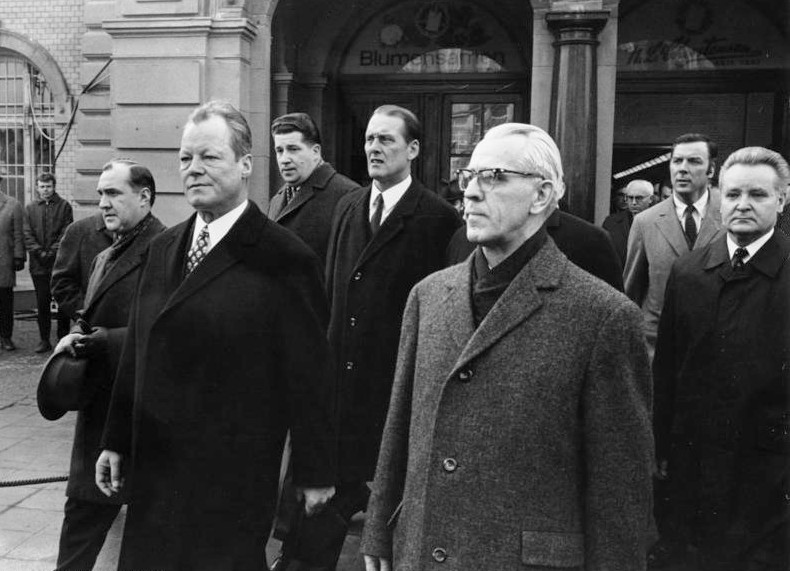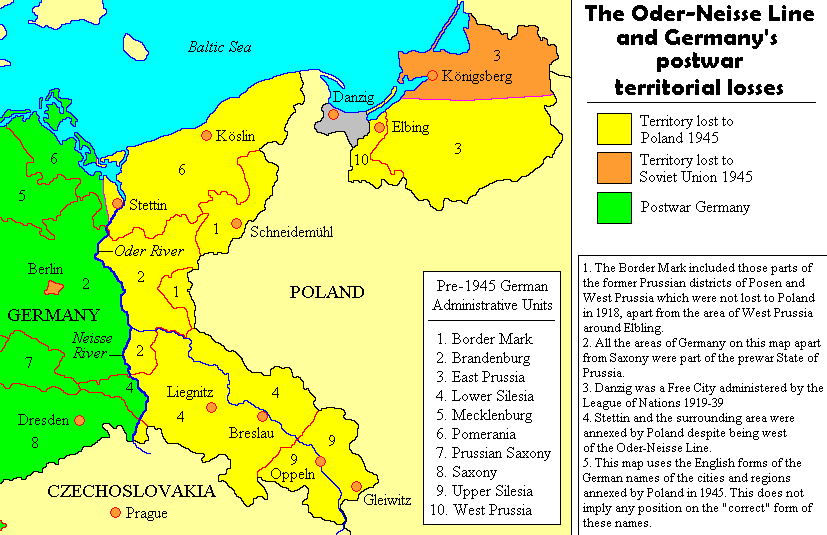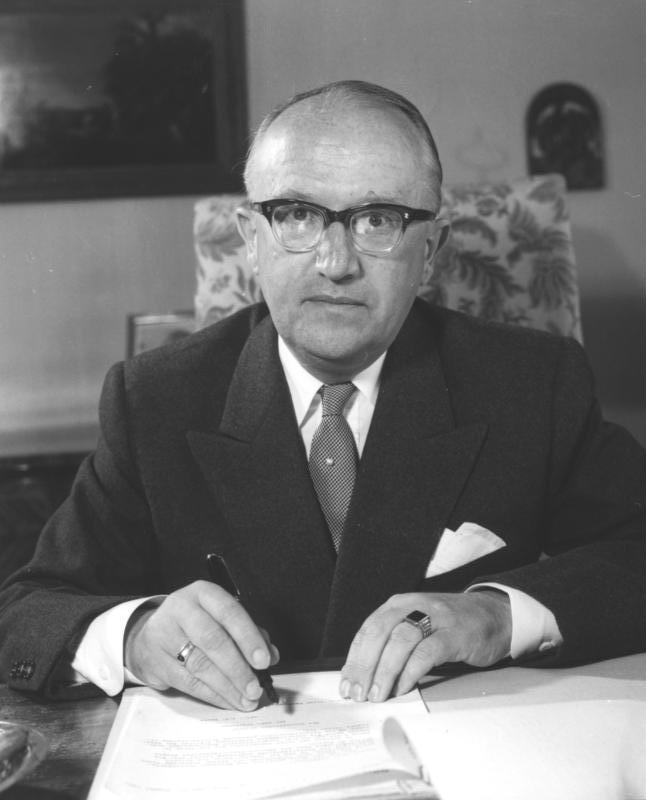|
Ostpolitik
''Neue Ostpolitik'' (German for "new eastern policy"), or ''Ostpolitik'' for short, was the normalization of relations between the Federal Republic of Germany (FRG, or West Germany) and Eastern Europe, particularly the German Democratic Republic (GDR, or East Germany) beginning in 1969. Influenced by Egon Bahr, who proposed "change through rapprochement" in a 1963 speech at the Evangelische Akademie Tutzing, the policies were implemented beginning with Willy Brandt, fourth Chancellor of the FRG from 1969 to 1974. ''Ostpolitik'' was an effort to break with the policies of the Christian Democratic Union (CDU), which was the elected government of West Germany from 1949 until 1969. The Christian Democrats under Konrad Adenauer and his successors tried to combat the Communist government of East Germany, while Brandt's Social Democrats tried to achieve a certain degree of cooperation with East Germany. The term ''Ostpolitik'' has since been applied to Pope Paul VI's efforts to en ... [...More Info...] [...Related Items...] OR: [Wikipedia] [Google] [Baidu] |
Willy Brandt
Willy Brandt (; born Herbert Ernst Karl Frahm; 18 December 1913 – 8 October 1992) was a German politician and statesman who was leader of the Social Democratic Party of Germany (SPD) from 1964 to 1987 and served as the chancellor of West Germany from 1969 to 1974. He was awarded the Nobel Peace Prize in 1971 for his efforts to strengthen cooperation in western Europe through the EEC and to achieve reconciliation between West Germany and the countries of Eastern Europe. He was the first Social Democrat chancellor since 1930. Fleeing to Norway and then Sweden during the Nazi regime and working as a left-wing journalist, he took the name Willy Brandt as a pseudonym to avoid detection by Nazi agents, and then formally adopted the name in 1948. Brandt was originally considered one of the leaders of the right wing of the SPD, and earned initial fame as Governing Mayor of West Berlin. He served as the foreign minister and as the vice-chancellor in Kurt Georg Kiesinger's cabi ... [...More Info...] [...Related Items...] OR: [Wikipedia] [Google] [Baidu] |
Egon Bahr
Egon Karl-Heinz Bahr (; 18 March 1922 – 19 August 2015) was a German SPD politician. The former journalist was the creator of the ''Ostpolitik'' promoted by West German Chancellor Willy Brandt, for whom he served as Secretary of State in the German Chancellery from 1969 until 1972. Between 1972 and 1990 he was an MP in the Bundestag of the Federal Republic of Germany and from 1972 until 1976 was also a Minister of the Federal Government. Bahr was a key figure in multiple negotiation sessions between not only East and West Germany, but also West Germany and the Soviet Union. In addition to his instrumental role in ''Ostpolitik'', Bahr was also an influential voice in negotiating the Treaty of Moscow, the Treaty of Warsaw, the Transit Treaty of 1971, and the Basic Treaty of 1972. Life and career Bahr was born in Treffurt, in the Prussian Province of Saxony, the son of Hedwig and Karl Bahr, a high school teacher. After completing his secondary education in 1940, Bahr ... [...More Info...] [...Related Items...] OR: [Wikipedia] [Google] [Baidu] |
Oder–Neisse Line
The Oder–Neisse line (german: Oder-Neiße-Grenze, pl, granica na Odrze i Nysie Łużyckiej) is the basis of most of the international border between Germany and Poland from 1990. It runs mainly along the Oder and Lusatian Neisse rivers and meets the Baltic Sea in the north, just west of the ports of Szczecin and Świnoujście (German: ''Stettin'' and ''Swinemünde''). All prewar German territories east of the line and within the 1937 German boundaries—comprising nearly one quarter (23.8 percent) of the Weimar Republic—were ceded under the changes decided at the postwar Potsdam Conference (Potsdam Agreement), with the greatest part becoming part of Poland. The remainder, consisting of northern East Prussia with the German city of Königsberg (renamed Kaliningrad), was allocated to the Soviet Union, as the Kaliningrad Oblast of the Russian SFSR (today Russia). However this did not become completely official until the peace treaty for Germany was signed. The ethnic Germ ... [...More Info...] [...Related Items...] OR: [Wikipedia] [Google] [Baidu] |
Hallstein Doctrine
The Hallstein Doctrine (), named after Walter Hallstein, was a key principle in the foreign policy of the Federal Republic of Germany (West Germany) from 1955 to 1970. As usually presented, it prescribed that the Federal Republic would not establish or maintain diplomatic relations with any state that recognized the German Democratic Republic (East Germany). In fact it was more nuanced. There was no public official text of the "doctrine", but its main architect, Wilhelm Grewe, explained it publicly in a radio interview. Konrad Adenauer, who served as Chancellor of Germany from 1949 to 1963, explained the outlines of the policy in a statement to the German parliament on 22 September 1955. It meant that the Federal German government would regard it as an unfriendly act (''acte peu amical'') if third countries were to recognize the "German Democratic Republic" (East Germany) or to maintain diplomatic relations with it – with the exception of the Soviet Union (as one of the ... [...More Info...] [...Related Items...] OR: [Wikipedia] [Google] [Baidu] |
West Germany
West Germany is the colloquial term used to indicate the Federal Republic of Germany (FRG; german: Bundesrepublik Deutschland , BRD) between its formation on 23 May 1949 and the German reunification through the accession of East Germany on 3 October 1990. During the Cold War, the western portion of Germany and the associated territory of West Berlin were parts of the Western Bloc. West Germany was formed as a political entity during the Allied occupation of Germany after World War II, established from eleven states of Germany, states formed in the three Allied zones of occupation held by the United States, the United Kingdom, and France. The FRG's provisional capital was the city of Bonn, and the Cold War era country is retrospectively designated as the Bonn Republic. At the onset of the Cold War, Europe was divided between the Western and Eastern Bloc, Eastern blocs. Germany was divided into the two countries. Initially, West Germany claimed an exclusive mandate for all of Ger ... [...More Info...] [...Related Items...] OR: [Wikipedia] [Google] [Baidu] |
Nordpolitik
Nordpolitik (German for "Northern Policy") was the signature foreign policy of South Korean president Roh Tae-woo. The policy guided South Korean efforts to reach out to the traditional allies of North Korea, with the goal of normalized relations with the closest allies to North Korea, China and the Soviet Union. By adopting Nordpolitik, South Korea abolished the doctrine of the enemy of my enemy is my friend and understood that the indirect approach was a more plausible way to engage with North Korea. The policy improved the South's economy while leaving the North more isolated and was a dramatic and historic turning point of South Korea’s diplomatic goals. The policy was named after the West German policy of Ostpolitik ("Eastern Policy") towards the then communist East Germany, although the Ostpolitik was aimed directly at a normalization of the relationship between two German states. The successor of the Nordpolitik was the Sunshine Policy, which bore more tangible similari ... [...More Info...] [...Related Items...] OR: [Wikipedia] [Google] [Baidu] |
East Germany
East Germany, officially the German Democratic Republic (GDR; german: Deutsche Demokratische Republik, , DDR, ), was a country that existed from its creation on 7 October 1949 until its dissolution on 3 October 1990. In these years the state was a part of the Eastern Bloc in the Cold War. Commonly described as a communist state, it described itself as a socialist "workers' and peasants' state".Patrick Major, Jonathan Osmond, ''The Workers' and Peasants' State: Communism and Society in East Germany Under Ulbricht 1945–71'', Manchester University Press, 2002, Its territory was administered and occupied by Soviet forces following the end of World War II—the Soviet occupation zone of the Potsdam Agreement, bounded on the east by the Oder–Neisse line. The Soviet zone surrounded West Berlin but did not include it and West Berlin remained outside the jurisdiction of the GDR. Most scholars and academics describe the GDR as a totalitarian dictatorship. The GDR was established i ... [...More Info...] [...Related Items...] OR: [Wikipedia] [Google] [Baidu] |
Konrad Adenauer
Konrad Hermann Joseph Adenauer (; 5 January 1876 – 19 April 1967) was a German statesman who served as the first chancellor of the Federal Republic of Germany from 1949 to 1963. From 1946 to 1966, he was the first leader of the Christian Democratic Union (CDU), a Christian-democratic party he co-founded, which became the dominant force in the country under his leadership. A devout Roman Catholic and member of the Catholic Centre Party, Adenauer was a leading politician in the Weimar Republic, serving as Mayor of Cologne (1917–1933) and as president of the Prussian State Council (1922–1933). In the early years of the Federal Republic, he switched focus from denazification to recovery, and led his country from the ruins of World War II to becoming a productive and prosperous nation that forged close relations with France, the United Kingdom and the United States. During his years in power, West Germany achieved democracy, stability, international respect and economic pros ... [...More Info...] [...Related Items...] OR: [Wikipedia] [Google] [Baidu] |
Social Democratic Party Of Germany
The Social Democratic Party of Germany (german: Sozialdemokratische Partei Deutschlands, ; SPD, ) is a centre-left social democratic political party in Germany. It is one of the major parties of contemporary Germany. Saskia Esken has been the party's leader since the 2019 leadership election together with Lars Klingbeil, who joined her in December 2021. After Olaf Scholz was elected chancellor in 2021 the SPD became the leading party of the federal government, which the SPD formed with the Greens and the Free Democratic Party, after the 2021 federal election. The SPD is a member of 11 of the 16 German state governments and is a leading partner in seven of them. The SPD was established in 1863. It was one of the earliest Marxist-influenced parties in the world. From the 1890s through the early 20th century, the SPD was Europe's largest Marxist party, and the most popular political party in Germany. During the First World War, the party split between a pro-war main ... [...More Info...] [...Related Items...] OR: [Wikipedia] [Google] [Baidu] |
Treaty Of Moscow (1970)
The Treaty of Moscow was signed on 12 August 1970 between the Soviet Union and West Germany. It was signed by Willy Brandt and Walter Scheel for West Germany's side and by Alexei Kosygin and Andrei Gromyko for the Soviet Union. Description In the 1970s, West German Chancellor Willy Brandt's ''Ostpolitik'' was a policy that "abandoned, at least for the time being, its claims with respect to German self-determination and reunification, recognising de facto the existence of the German Democratic Republic (GDR) and the Oder–Neisse line".The Federal Republic of Germany's ''Ostpolitik'' on CVCE website (Centre for European Studies). Both sides expressed their ambition to strive for a normalisation of the relations between the European sta ... [...More Info...] [...Related Items...] OR: [Wikipedia] [Google] [Baidu] |
Christian Democratic Union (Germany)
The Christian Democratic Union of Germany (german: link=no, Christlich Demokratische Union Deutschlands ; CDU ) is a Christian democracy, Christian democratic and Liberal conservatism, liberal conservative List of political parties in Germany, political party in Germany. It is the major Big tent, catch-all party of the centre-right in Politics of Germany, German politics. Friedrich Merz has been federal chairman of the CDU since 31 January 2022. The CDU is the second largest party in the Bundestag, the German federal legislature, with 152 out of 736 seats, having won 18.9% of votes in the 2021 German federal election, 2021 federal election. It forms the CDU/CSU Bundestag faction, also known as the Union, with its Bavarian counterpart, the Christian Social Union in Bavaria (CSU). The group's parliamentary leader is also Friedrich Merz. Founded in 1945 as an interdenominational Christian party, the CDU effectively succeeded the pre-war Catholic Centre Party (Germany), Centre Part ... [...More Info...] [...Related Items...] OR: [Wikipedia] [Google] [Baidu] |
West Berlin
West Berlin (german: Berlin (West) or , ) was a political enclave which comprised the western part of Berlin during the years of the Cold War. Although West Berlin was de jure not part of West Germany, lacked any sovereignty, and was under military occupation until German reunification in 1990, the territory was claimed by the Federal Republic of Germany (FRG) which was heavily disputed by the Soviet Union and other Eastern Bloc countries. However, West Berlin de facto aligned itself politically with the FRG on 23 May 1949, was directly or indirectly represented in its federal institutions, and most of its residents were citizens of the FRG. West Berlin was formally controlled by the Western Allies and entirely surrounded by the Soviet-controlled East Berlin and East Germany. West Berlin had great symbolic significance during the Cold War, as it was widely considered by westerners an "island of freedom" and America's most loyal counterpart in Europe. It was heavily subsidi ... [...More Info...] [...Related Items...] OR: [Wikipedia] [Google] [Baidu] |

.jpg)




.png)